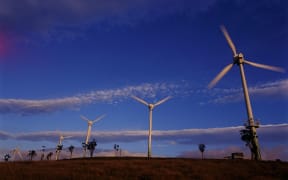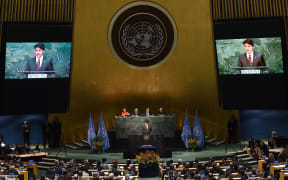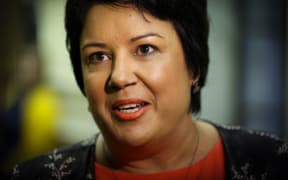The government's goal of 90 percent renewable electricity generation by 2025 can be achieved, a new report argues.
The Royal Society of New Zealand commissioned the research which was written by a panel of experts, led by Massey University Professor Ralph Sims.

Photo: 123RF
Professor Sims said ambitious action was needed on climate change by all New Zealanders.
"Many mitigation options are already well-understood and achievable and also have flow-on benefits.
"Business-as-usual approaches will not get us where we need to be."
The report said the government's goal of reaching 90 percent renewable electricity generation by 2025 was technically and economically possible.
To do this, it argued the electricity grid needed to be more flexible with more energy storage and found an even higher percentage could be reached if back-up generation could be put in place to meet seasonal peaks, particularly when water flows were low in the hydro-electric dams.
The report suggested it could be possible to get to near zero net carbon emissions for electricity generation, by including some coal or gas fired power plants linked with carbon dioxide capture and storage.
Almost half of New Zealand's greenhouse gas emissions come from the agricultural sector, and Professor Sims acknowledged it would be challenging to reduce those emissions unless the country's reliance on animal protein production was also reduced.
"But emissions could be reduced by adopting 'best practices', selectively breeding cattle and sheep and adjusting rumen biology to reduce emissions."
Despite the high level of emissions coming from agriculture, the report also made the case that there was room to make serious changes in other areas, with some that could start immediately.
They included setting vehicle fuel efficiency standards, encouraging people to move to low or zero-emissions vehicles, moving road freight to shipping or rail and strengthening codes to encourage more energy efficiency in buildings and appliances.
The transition to a low-carbon future would require carefully planned policy interventions, but also changes in behaviour by individuals, businesses, local and central government, said Professor Sims.







